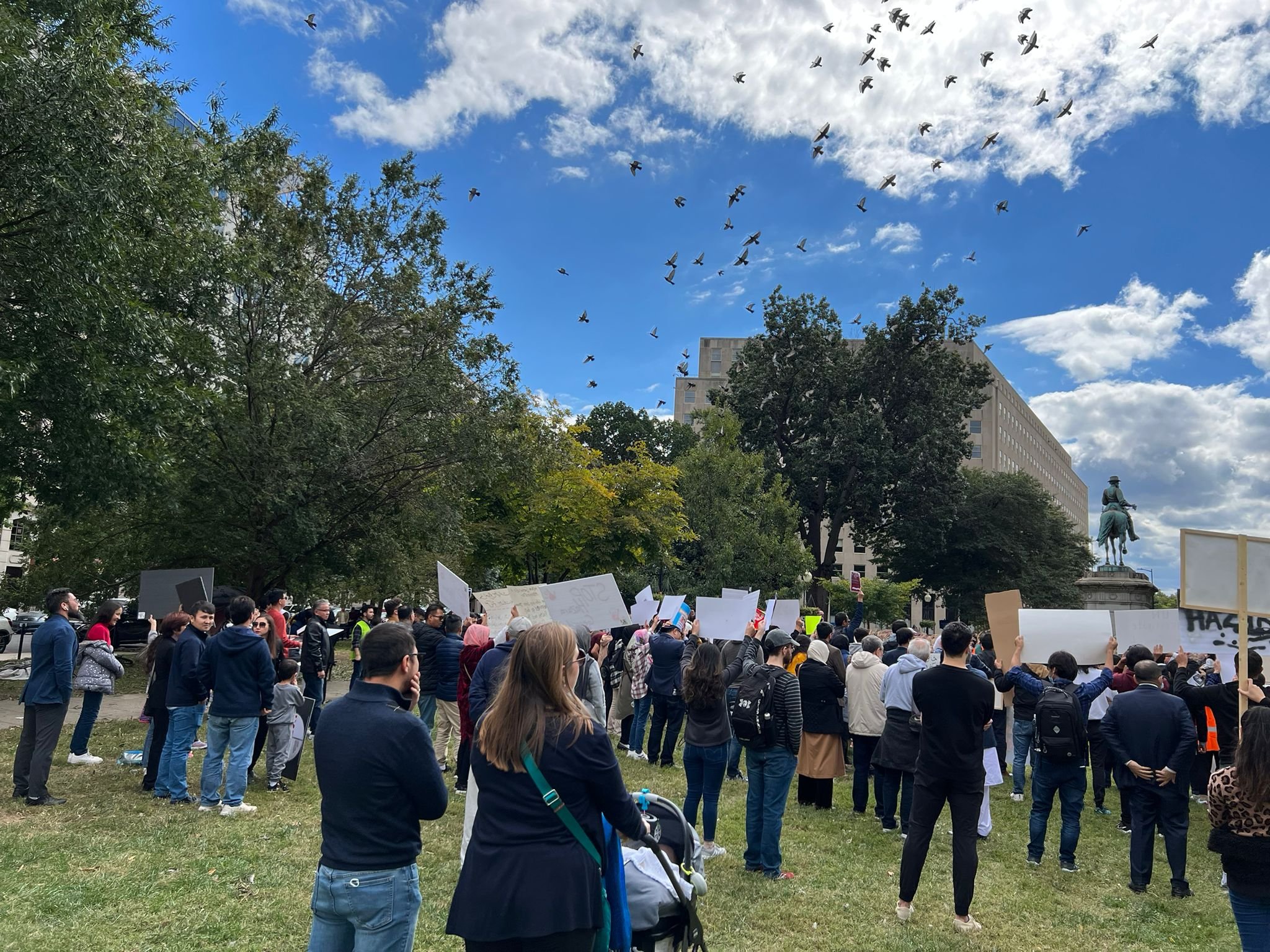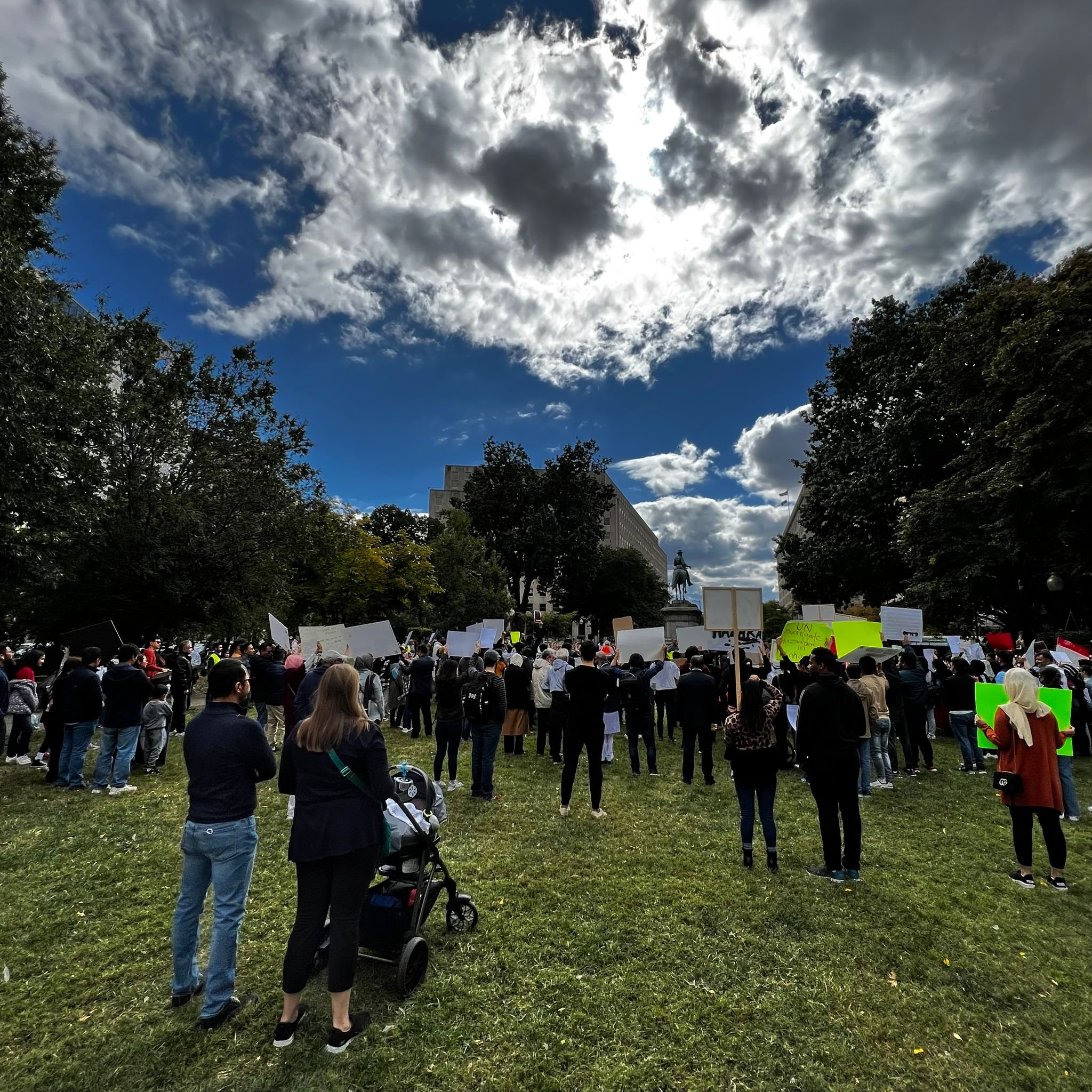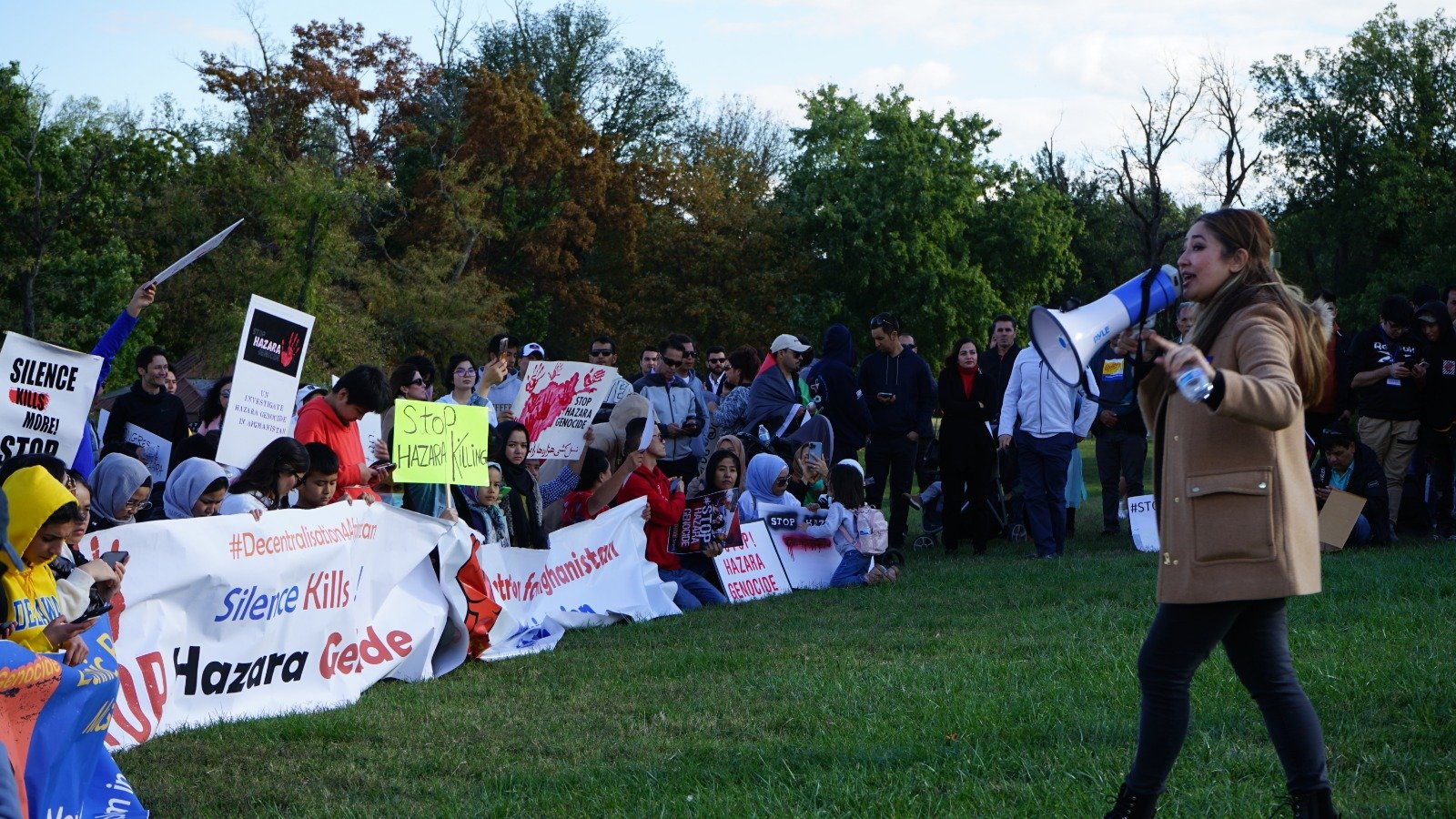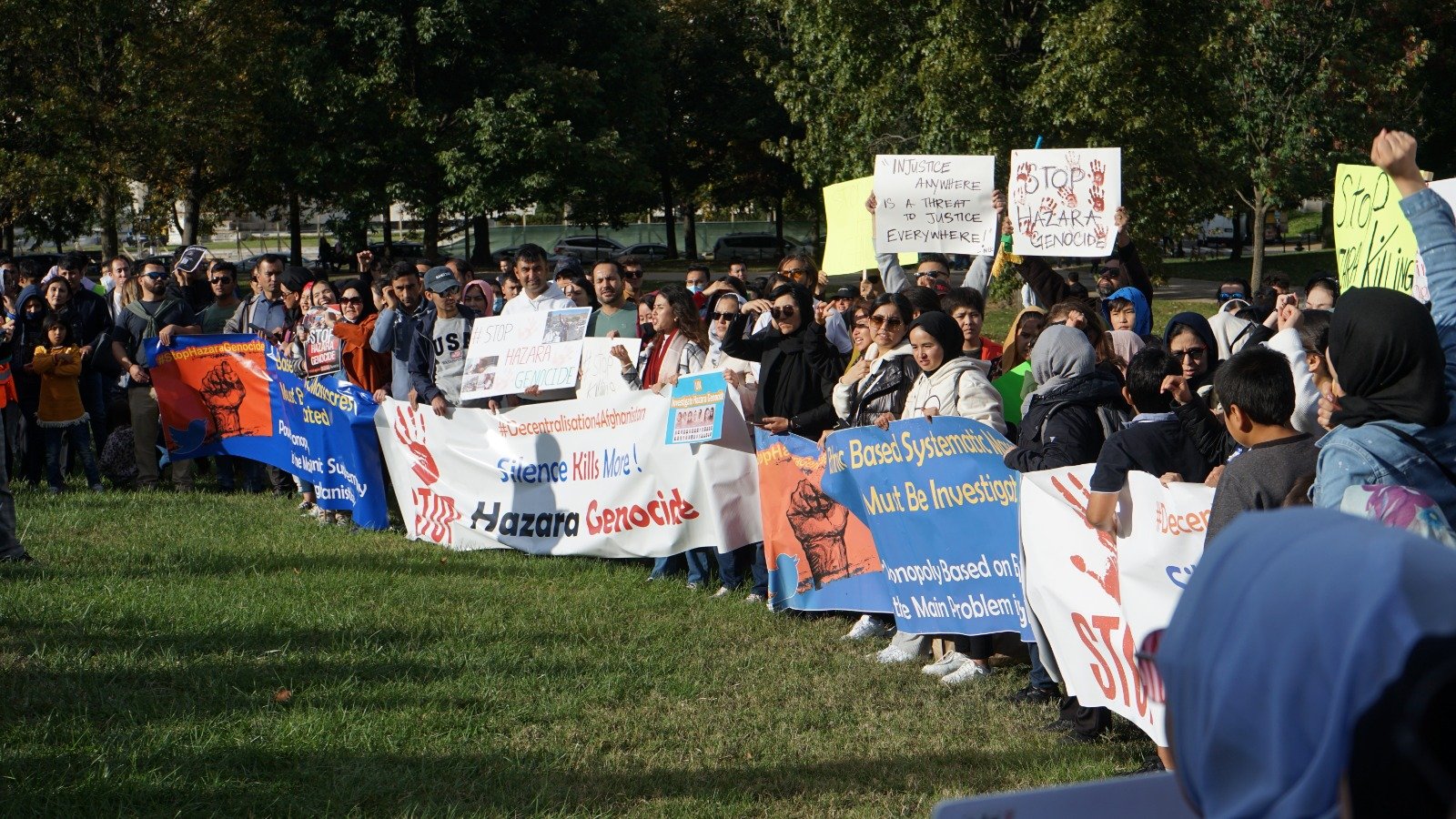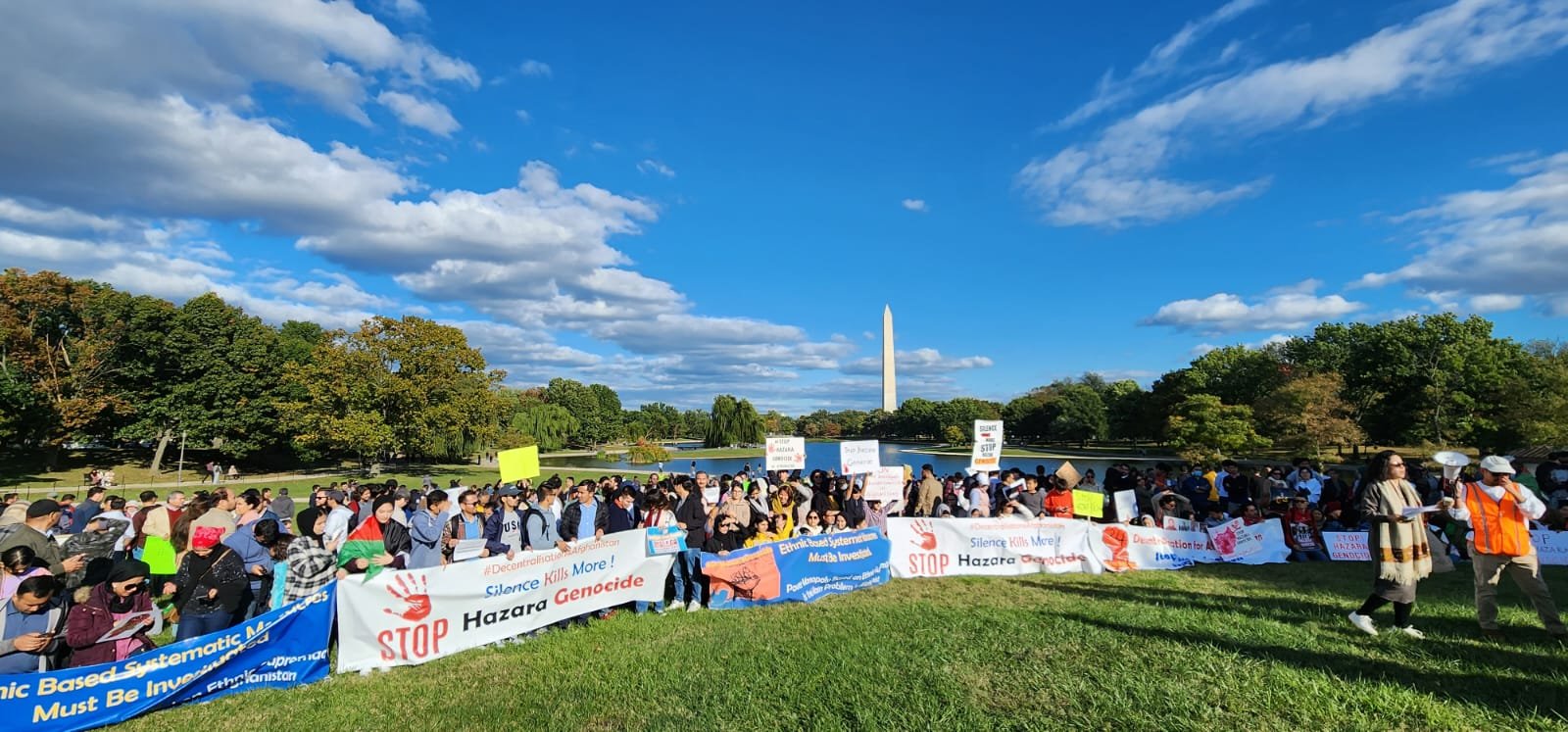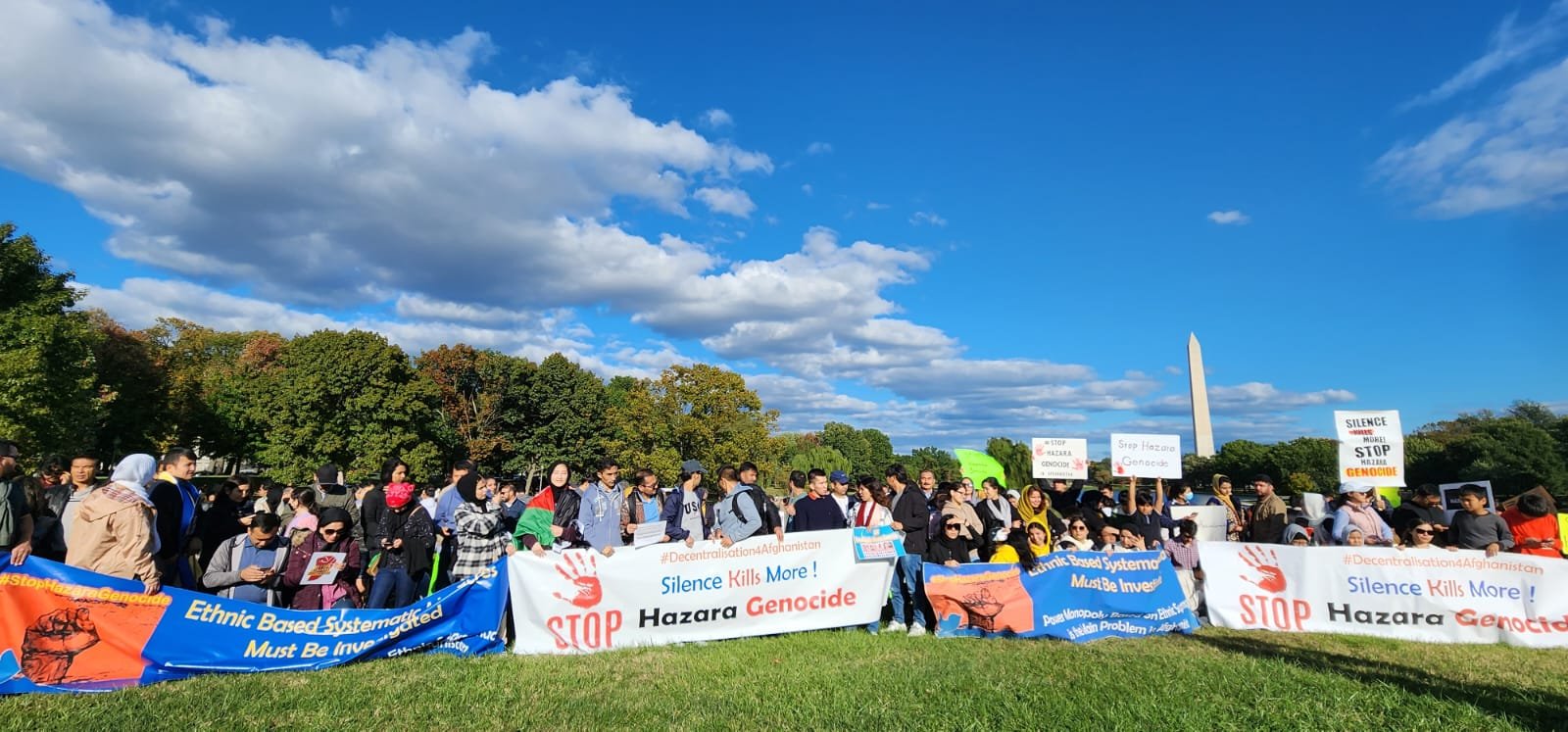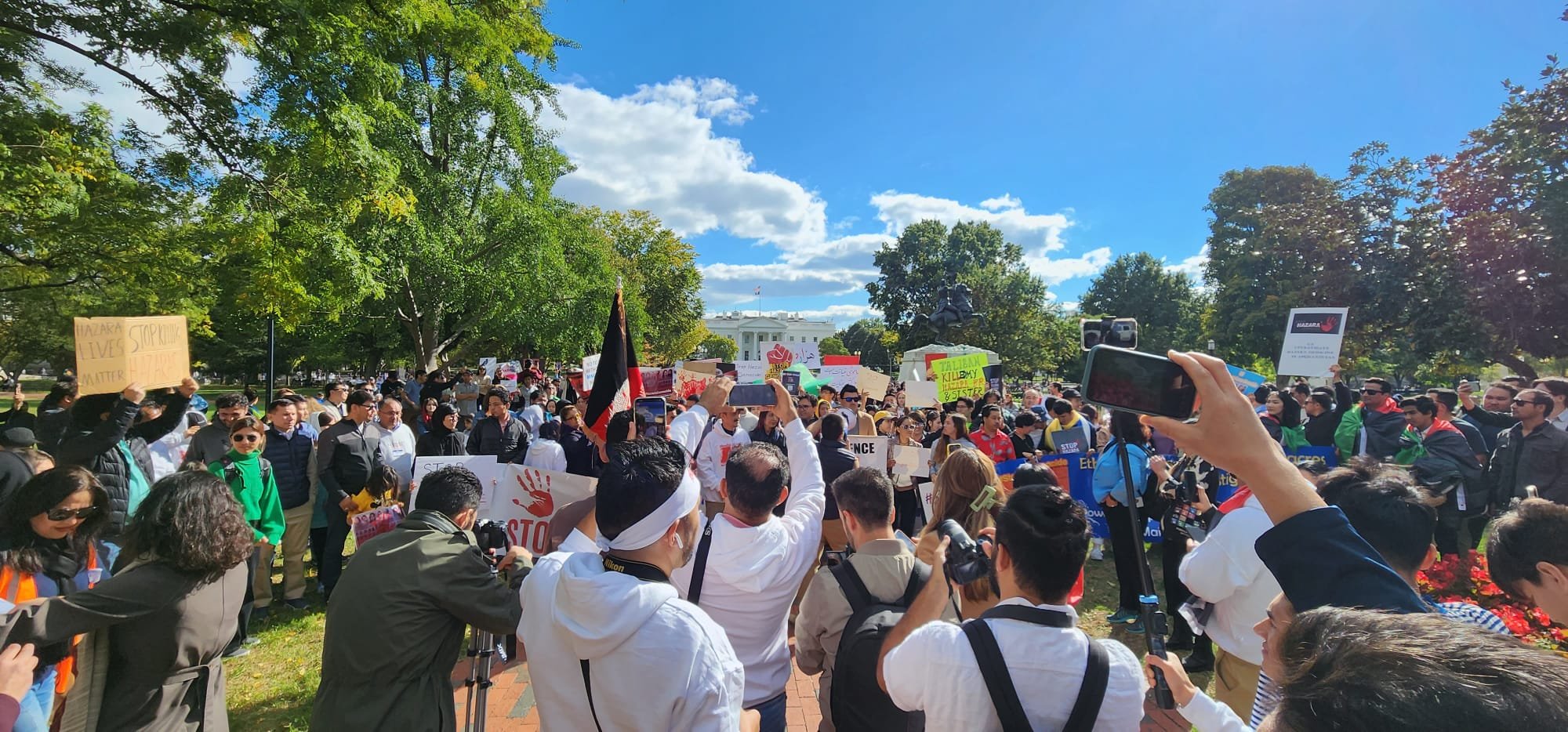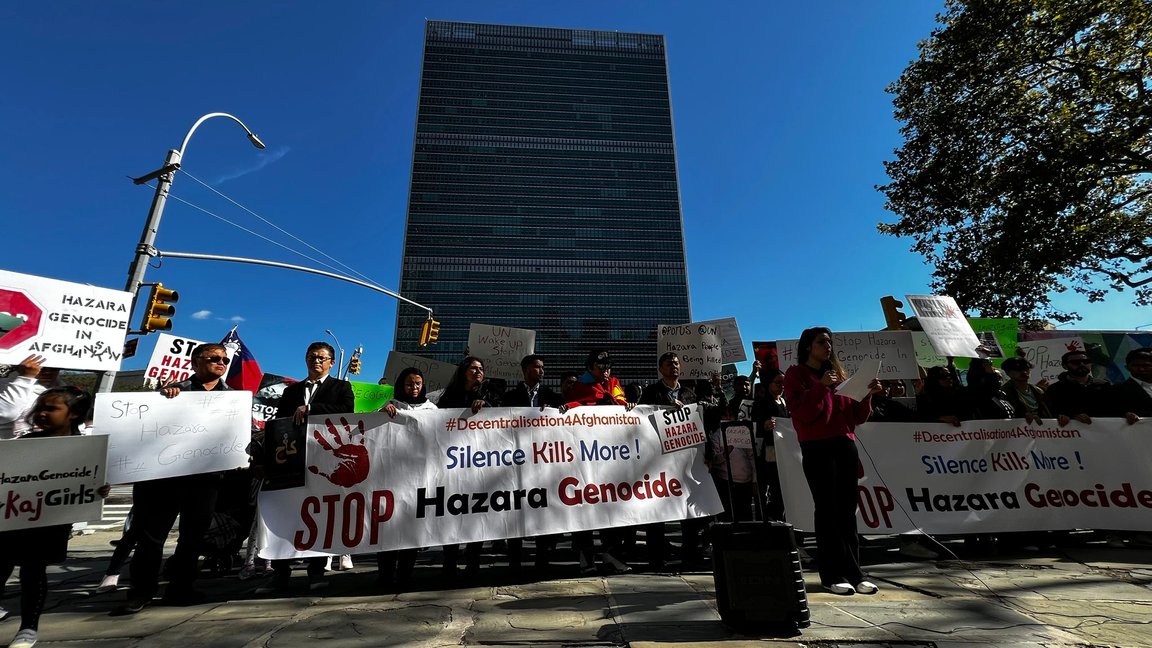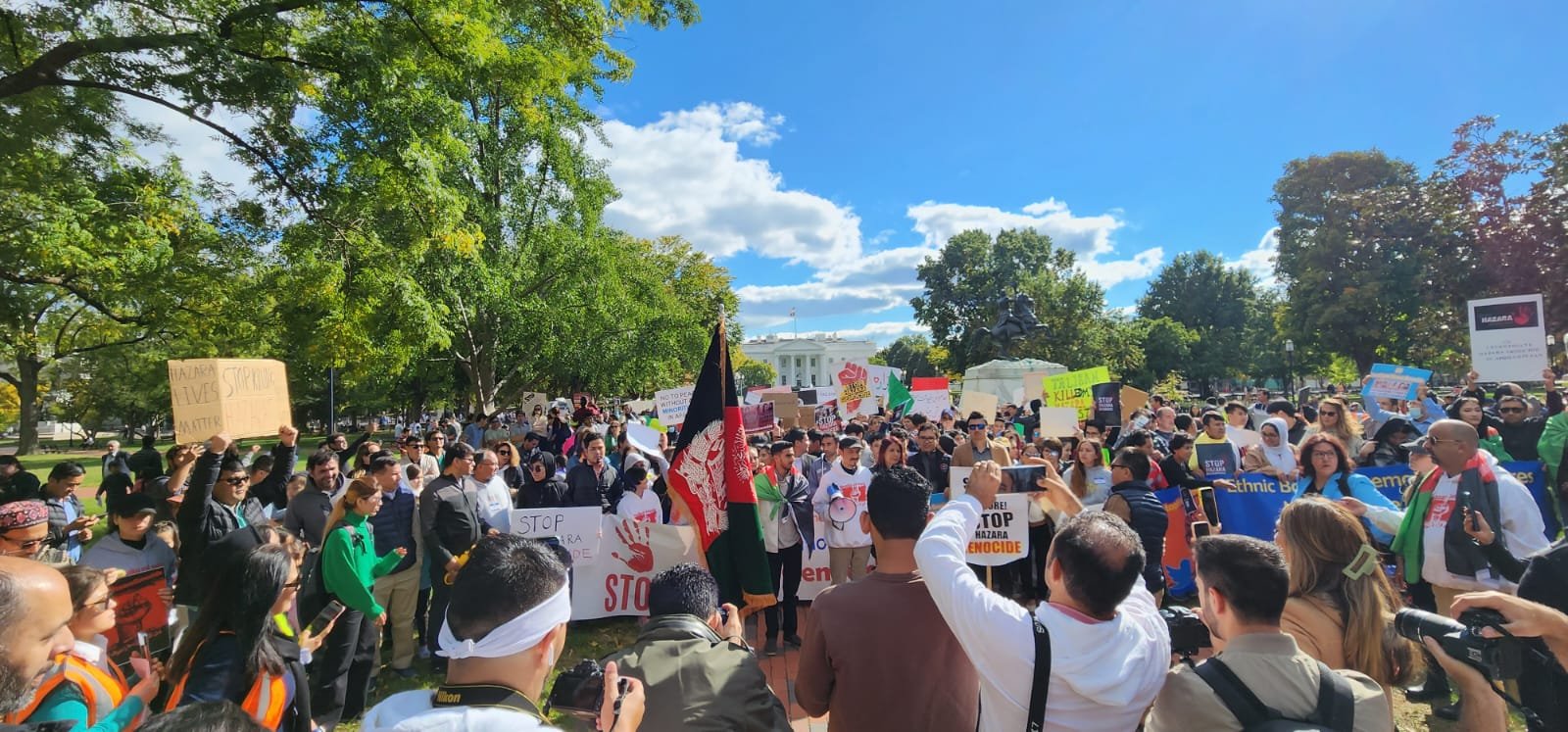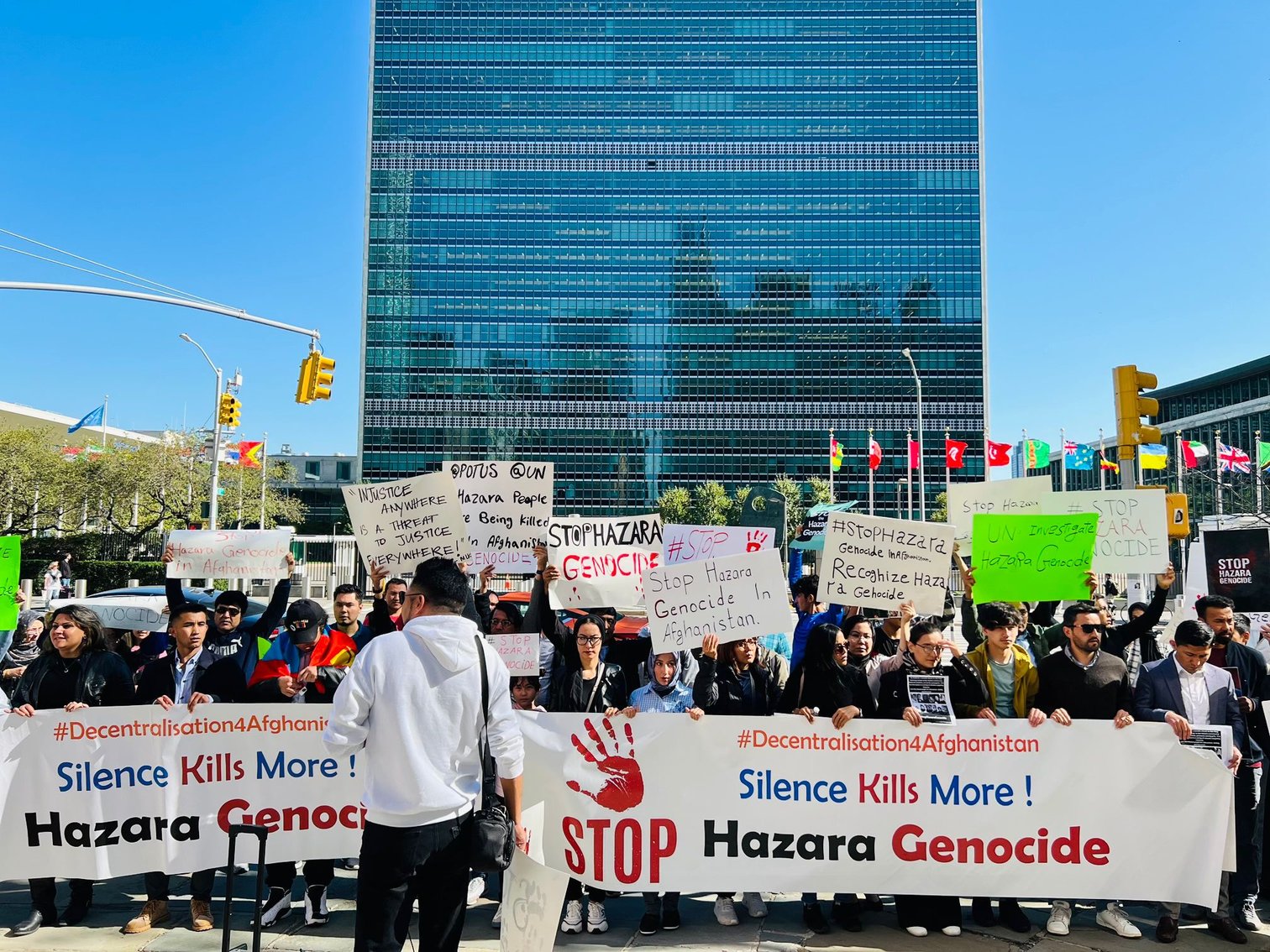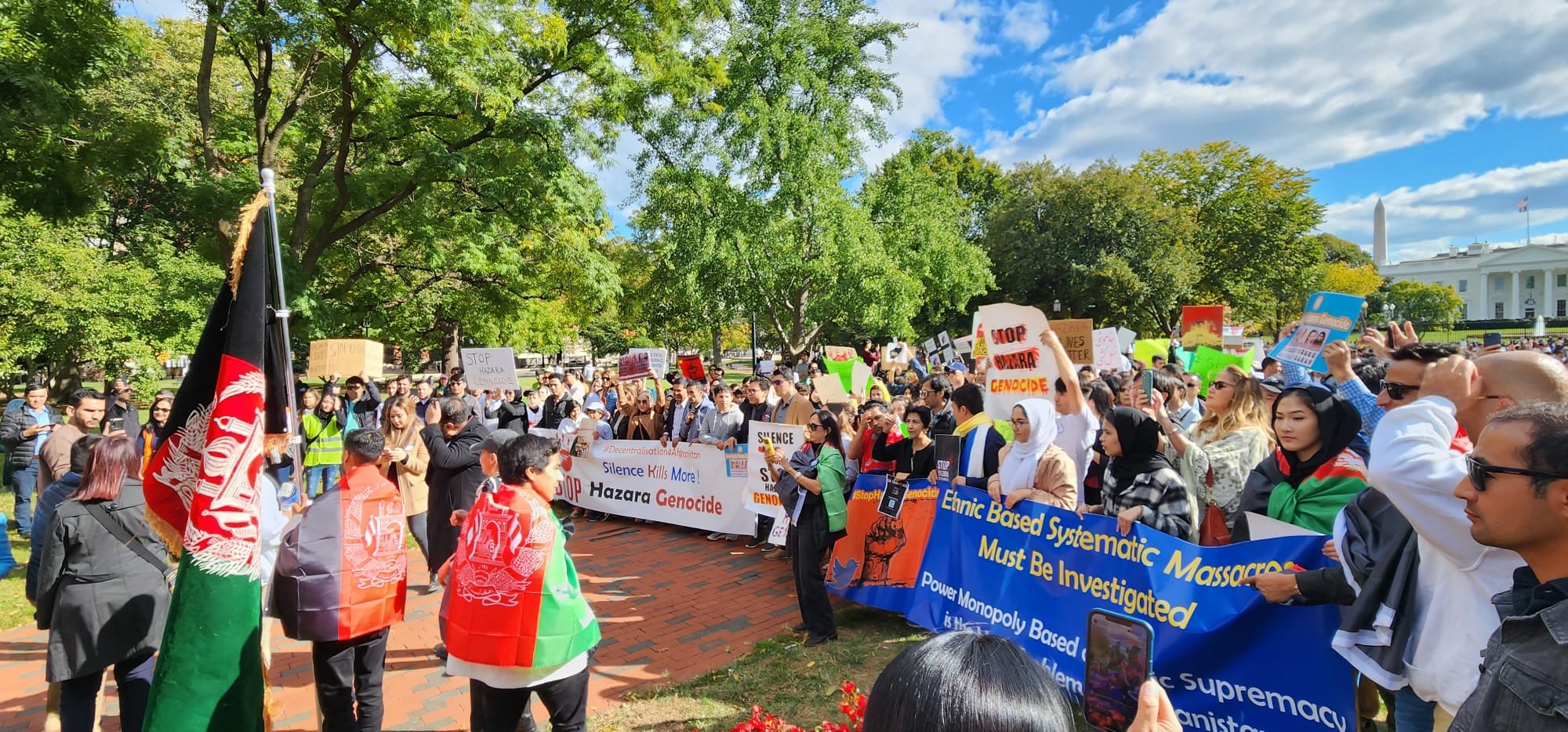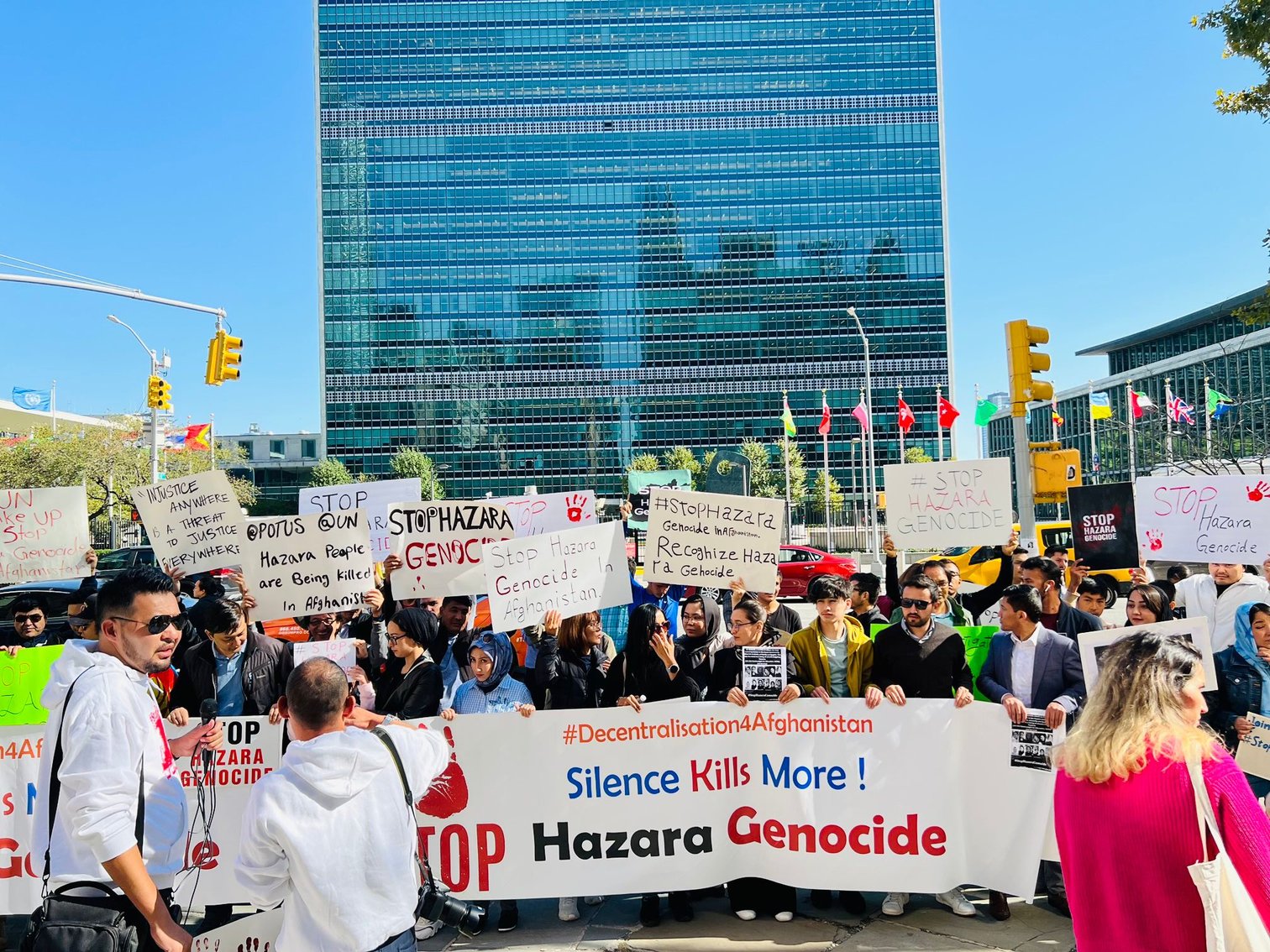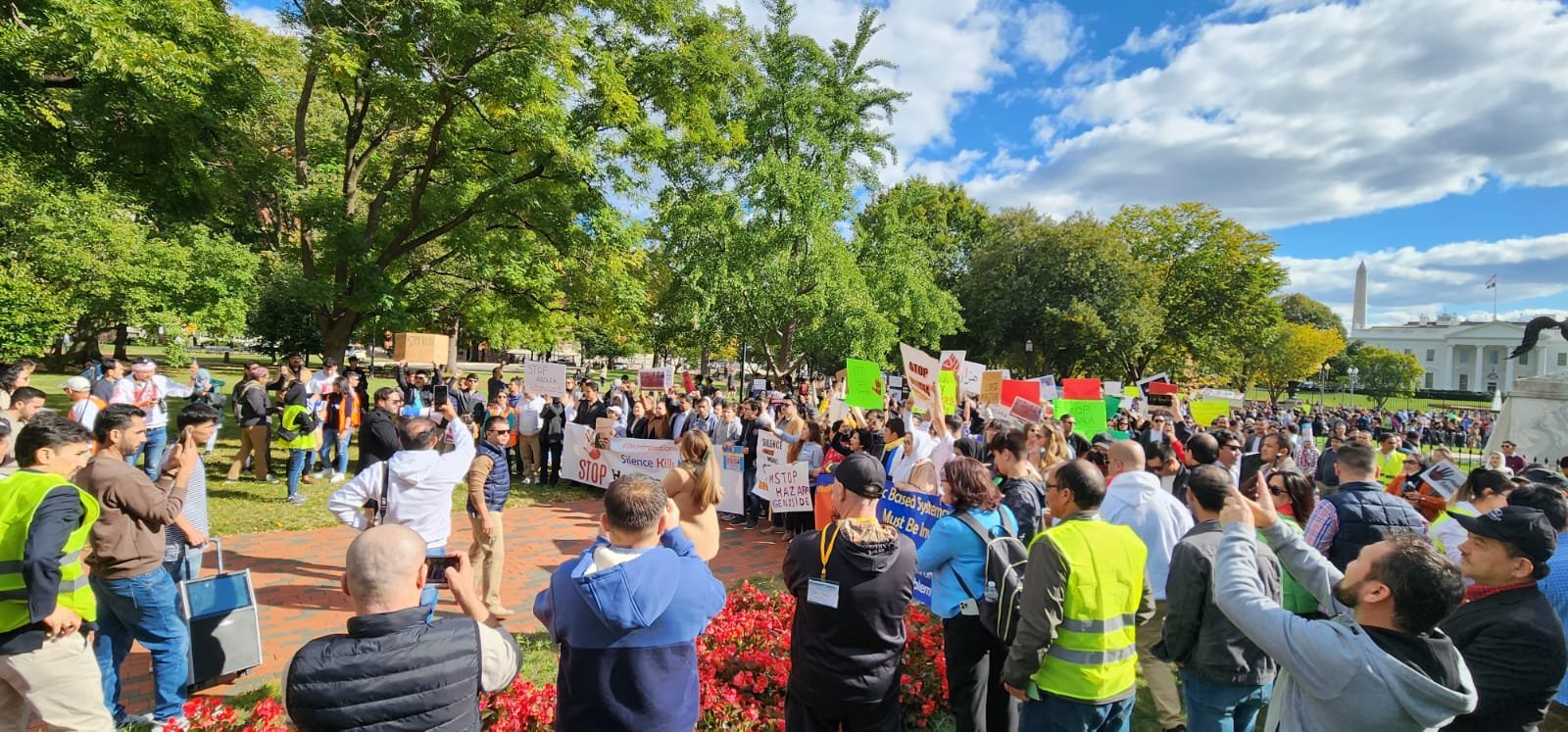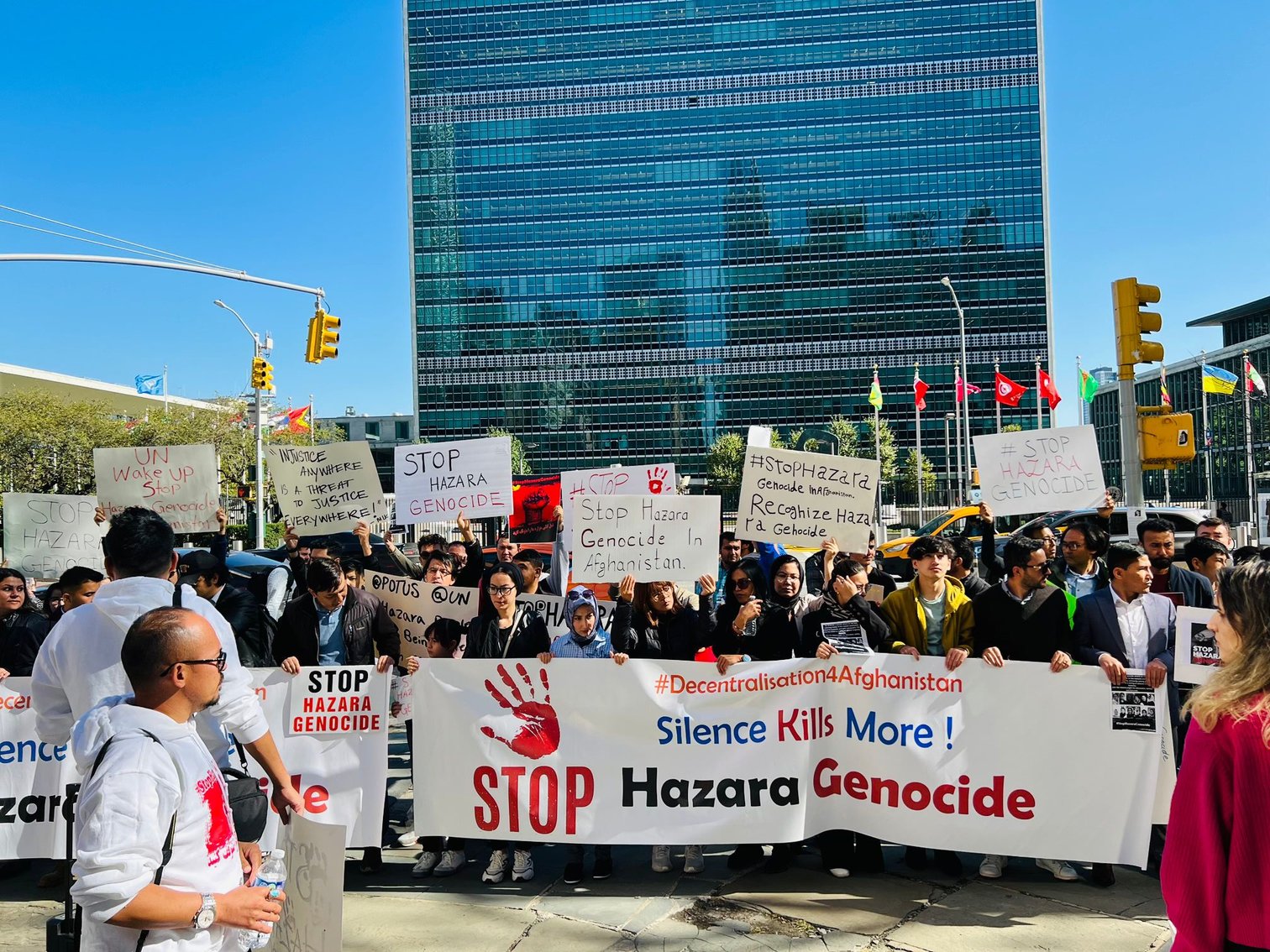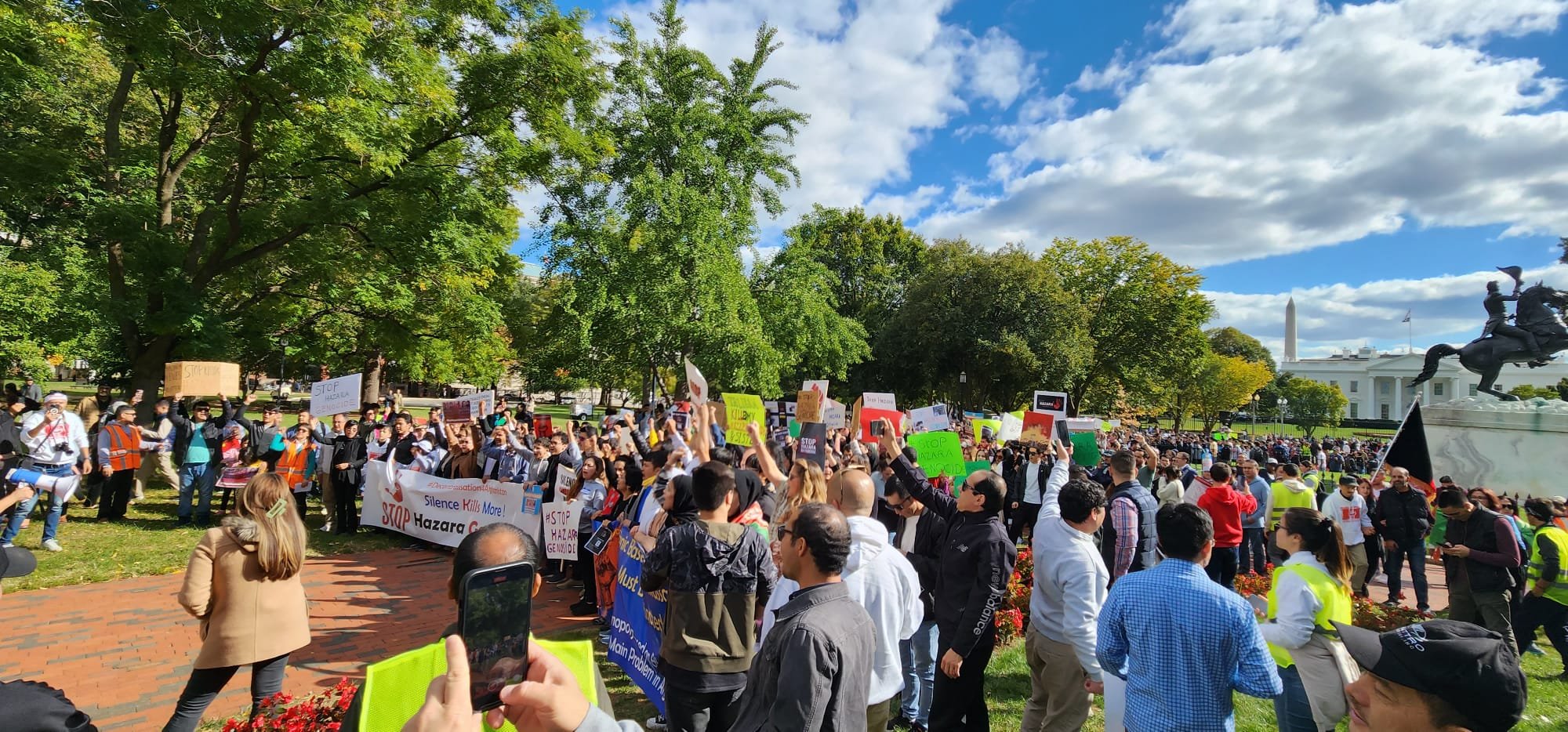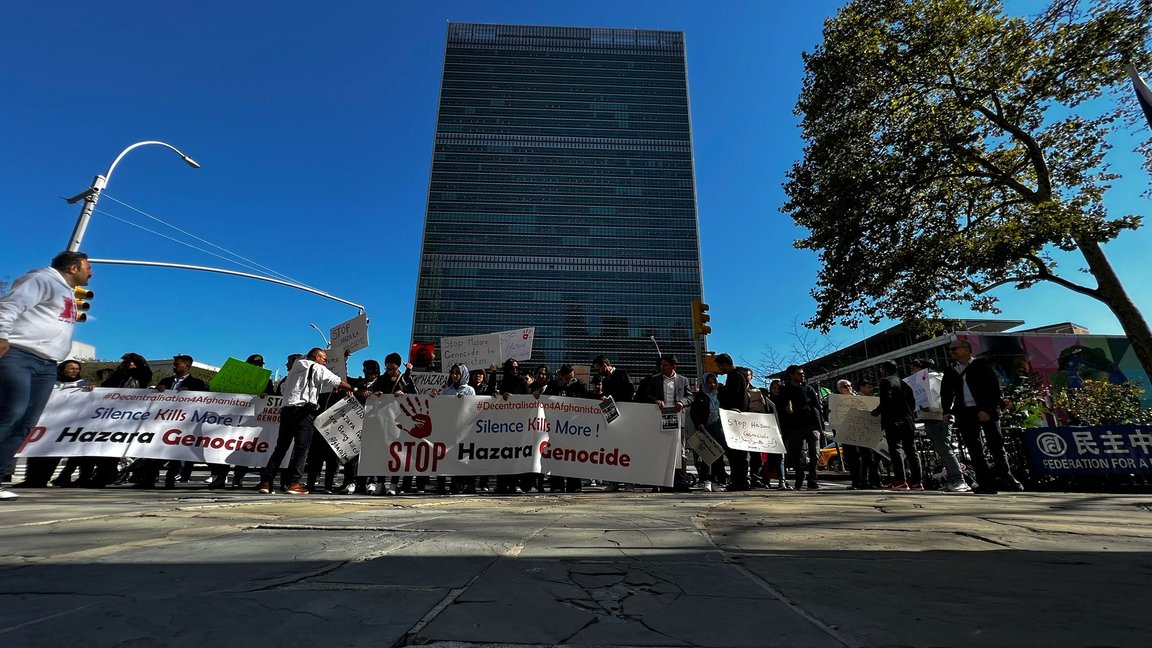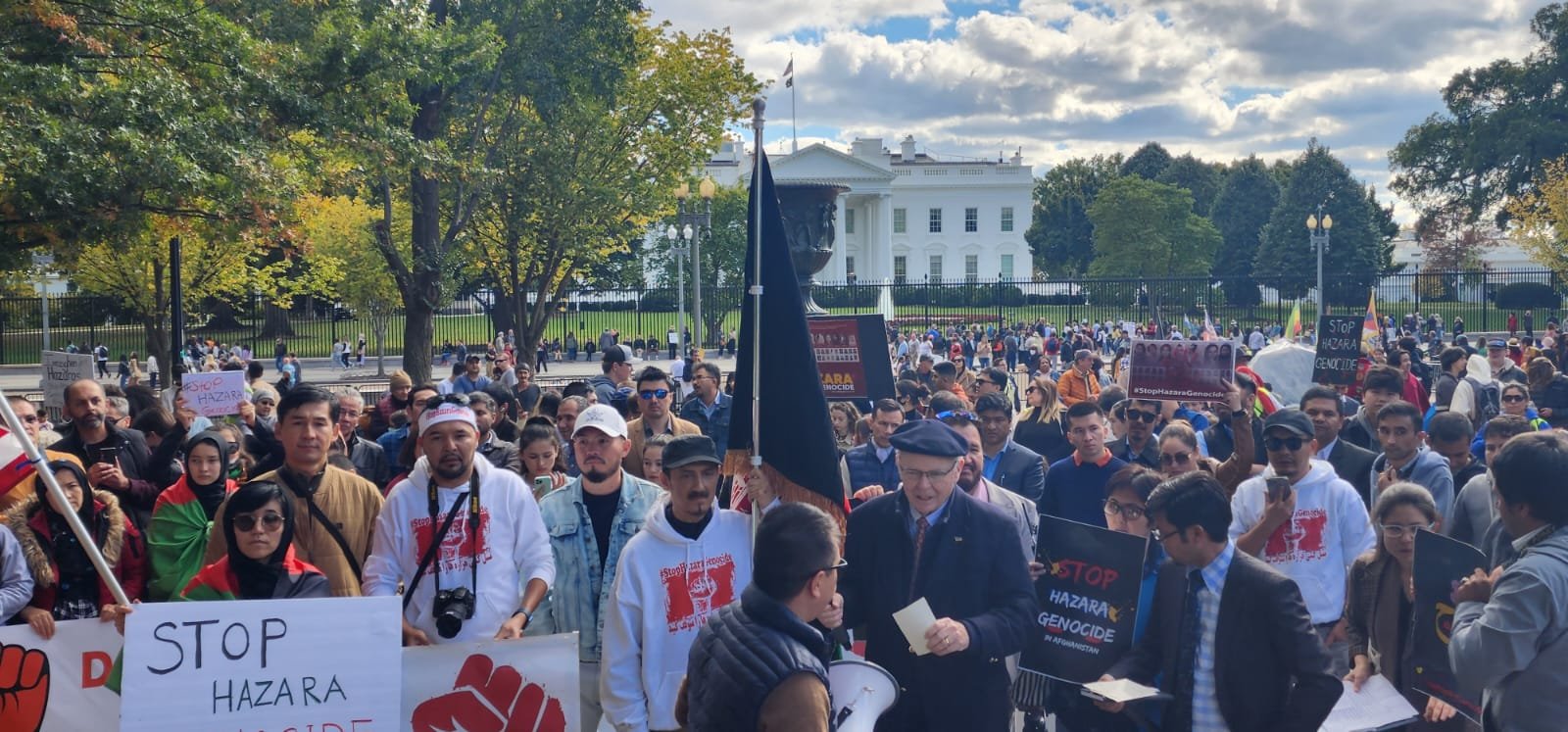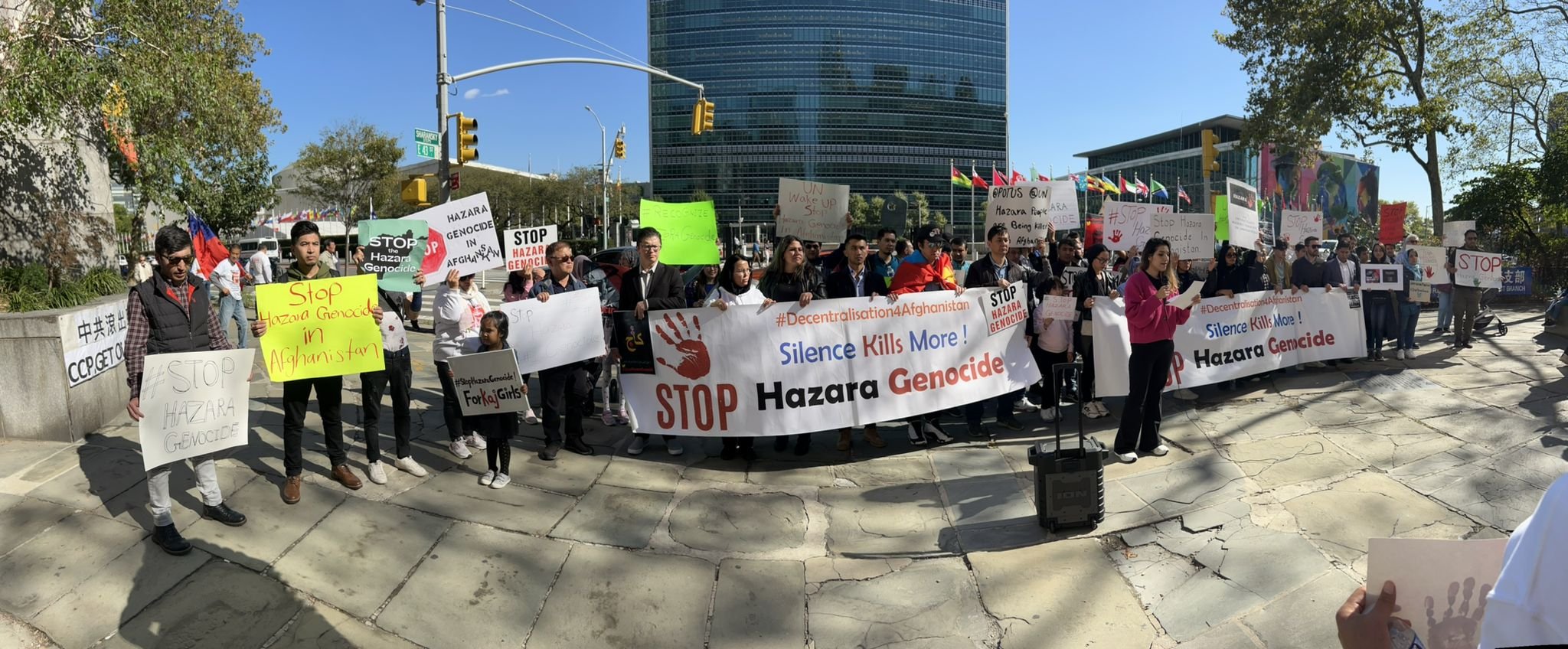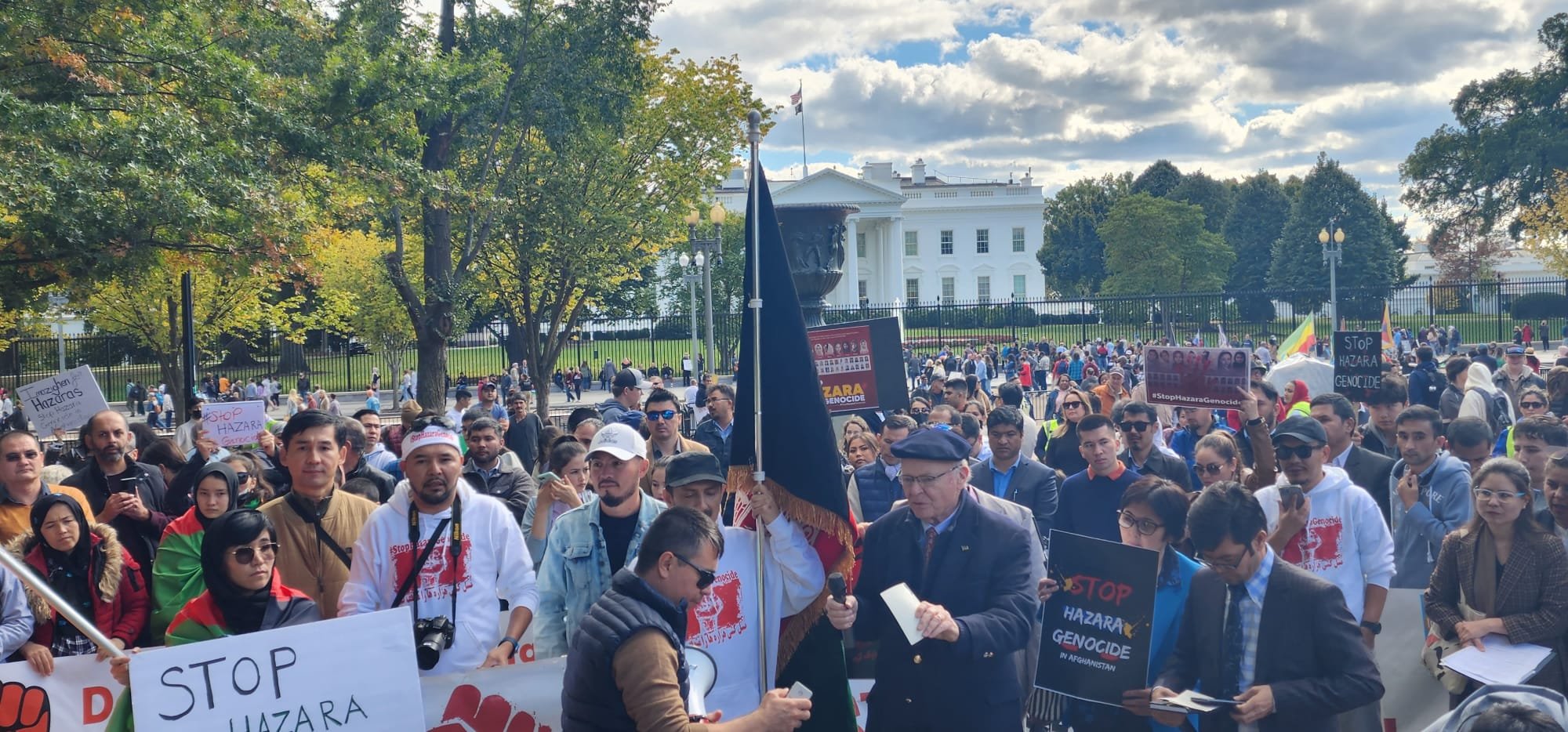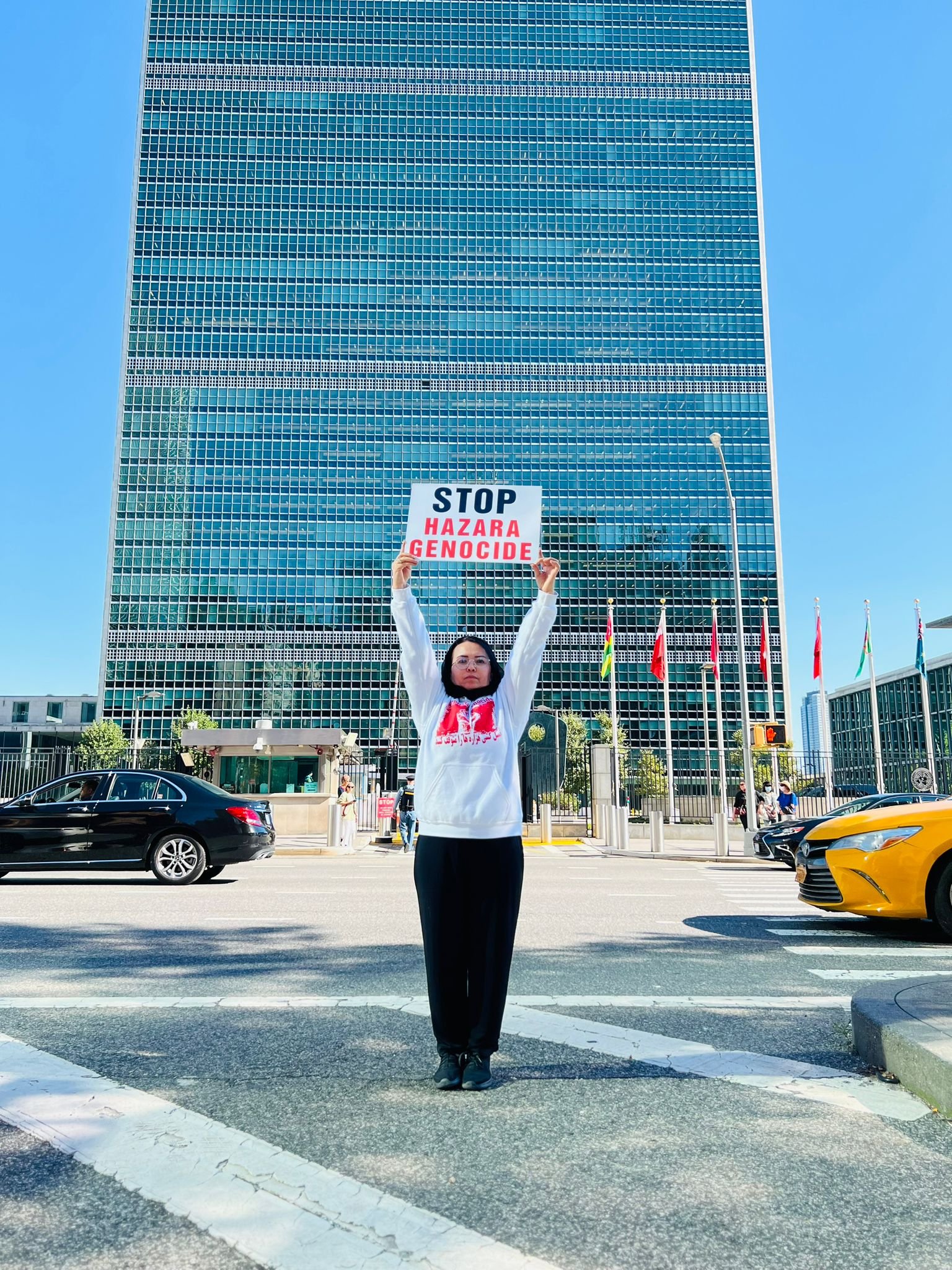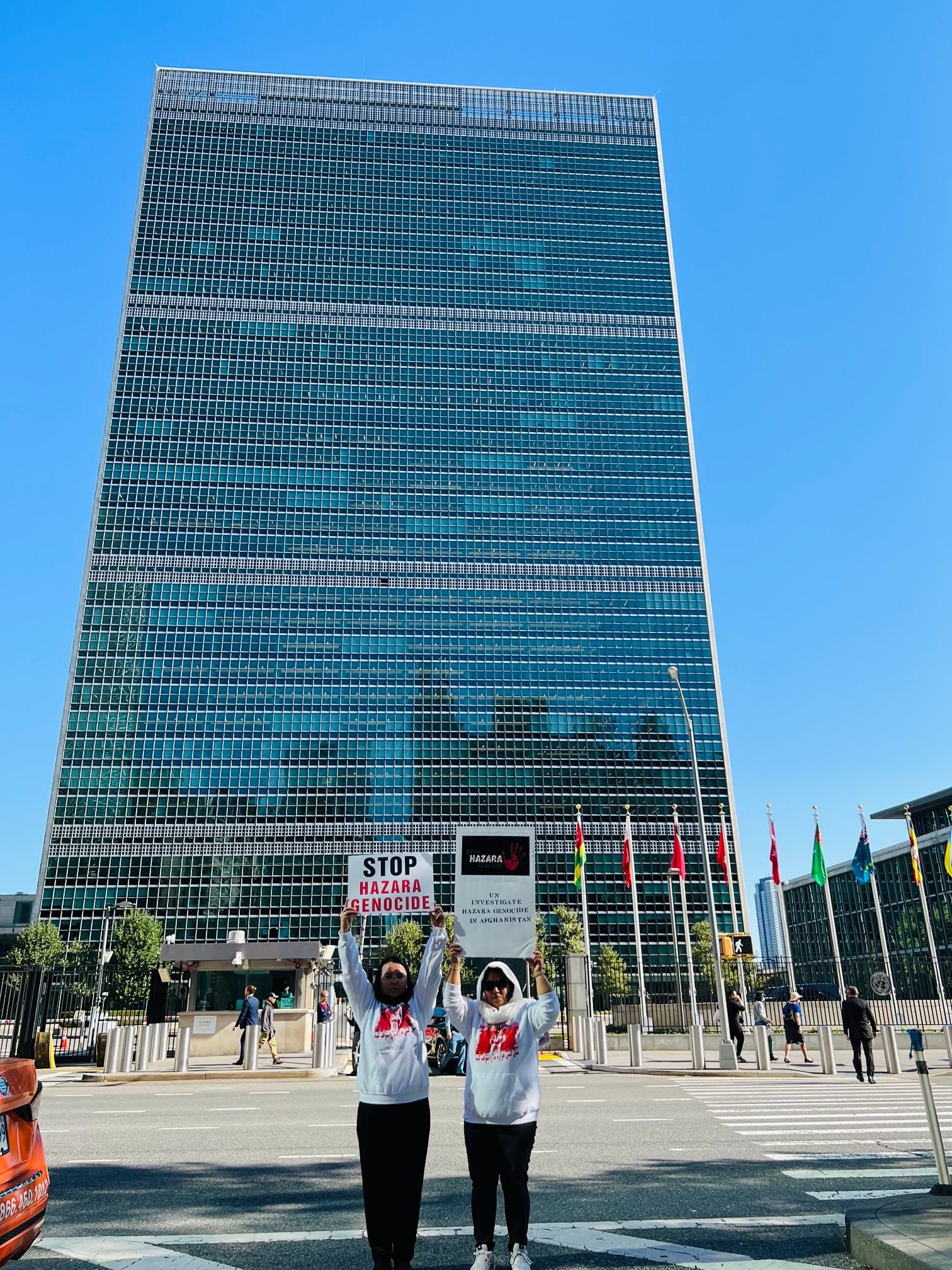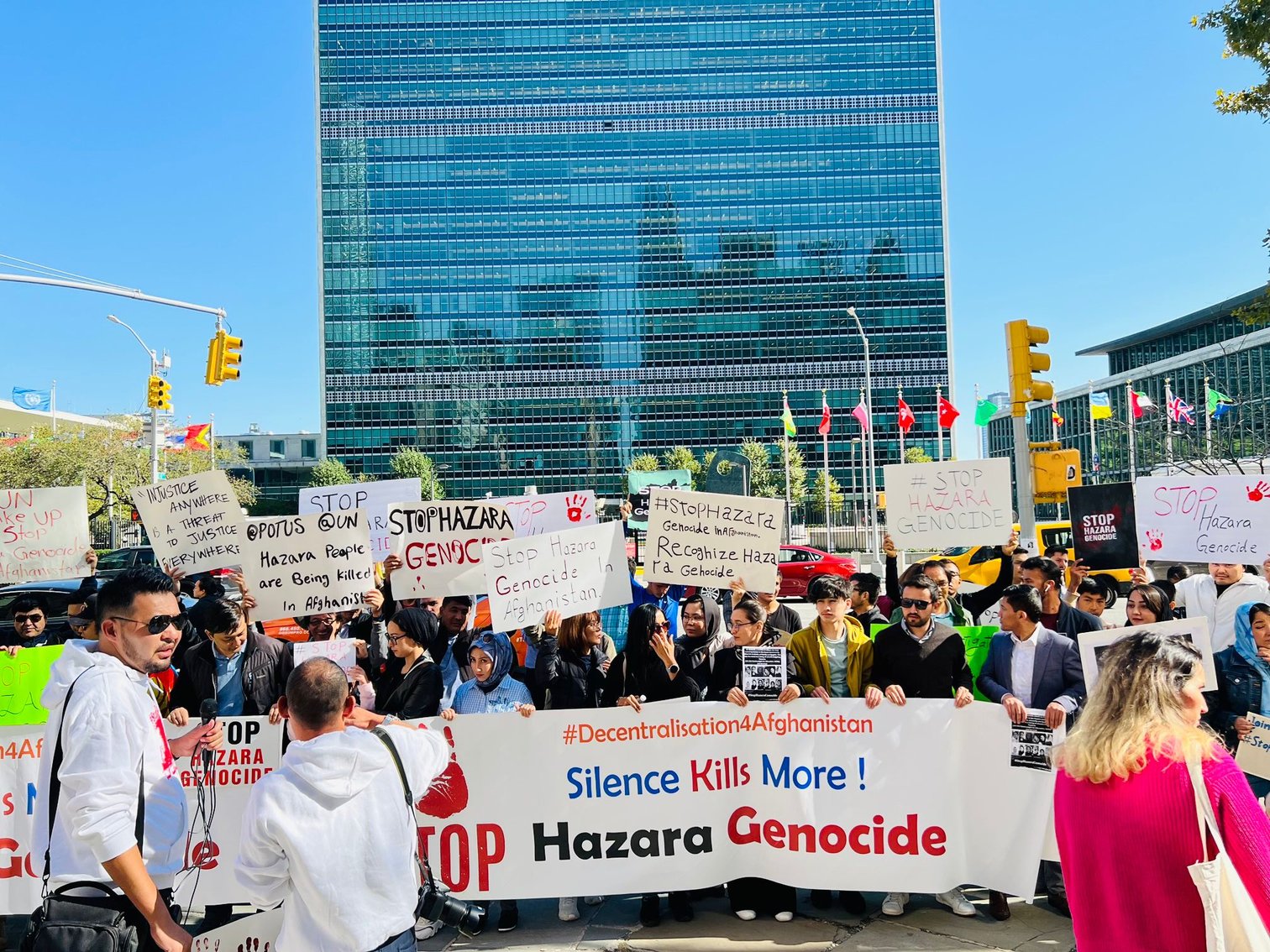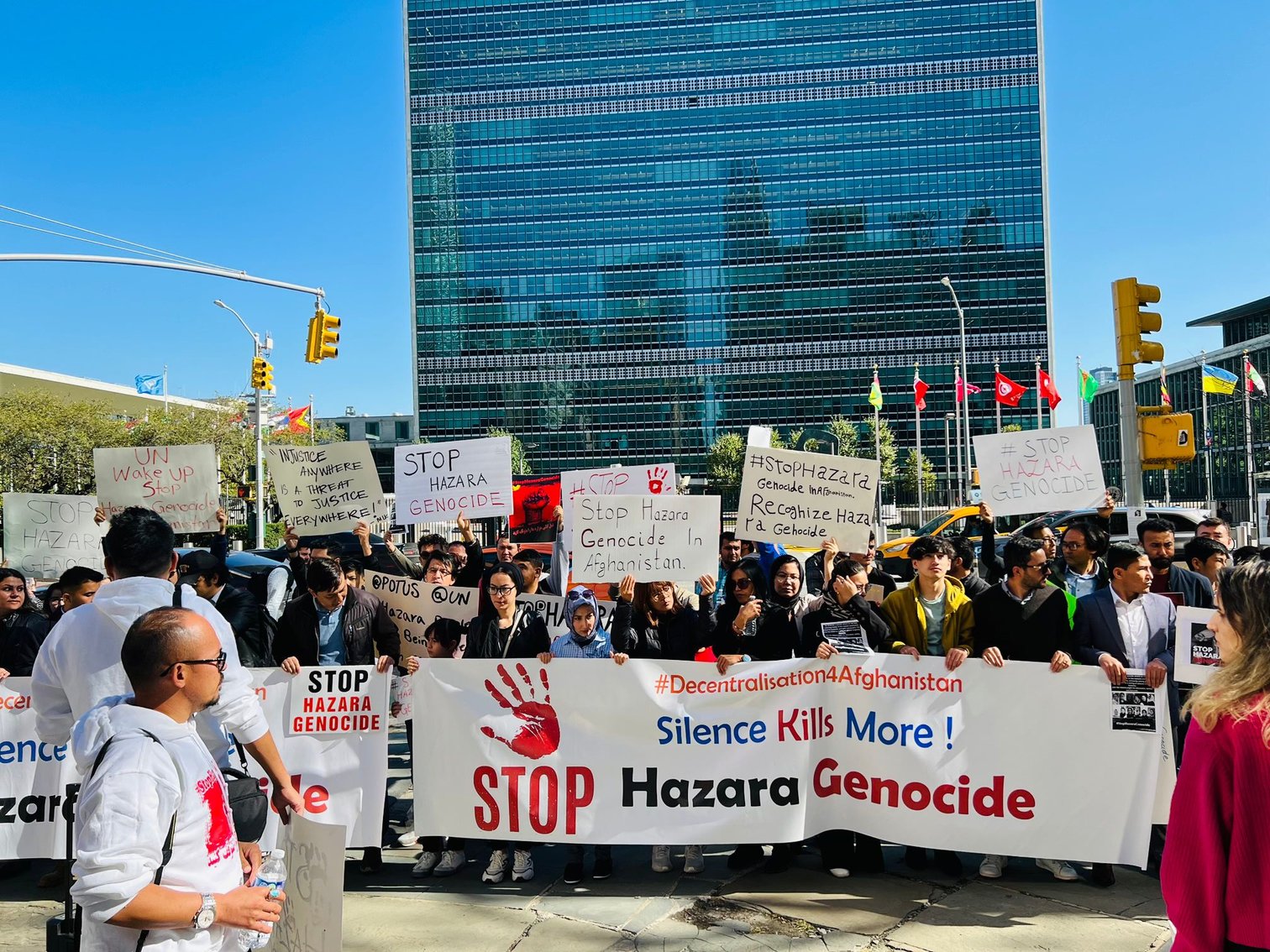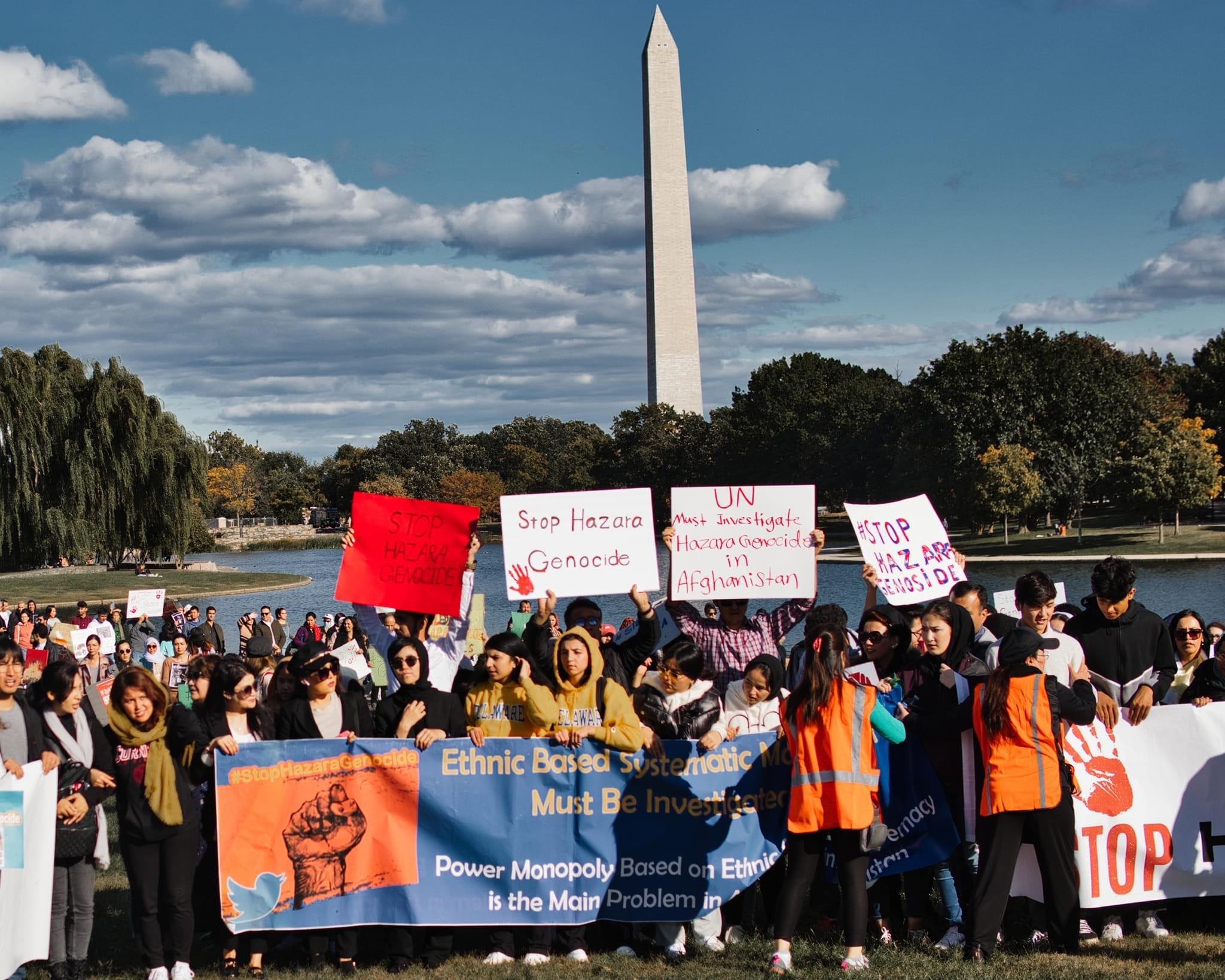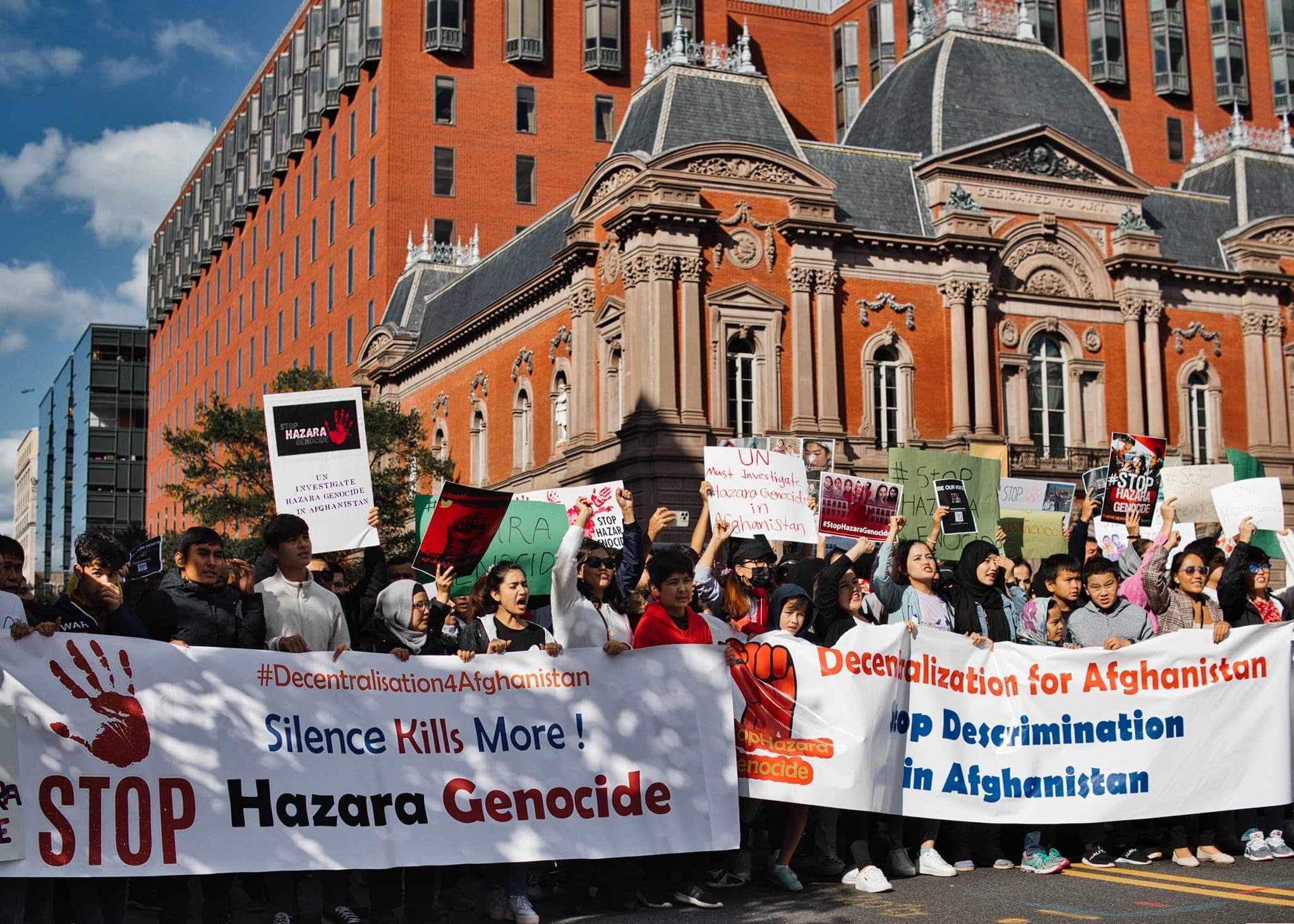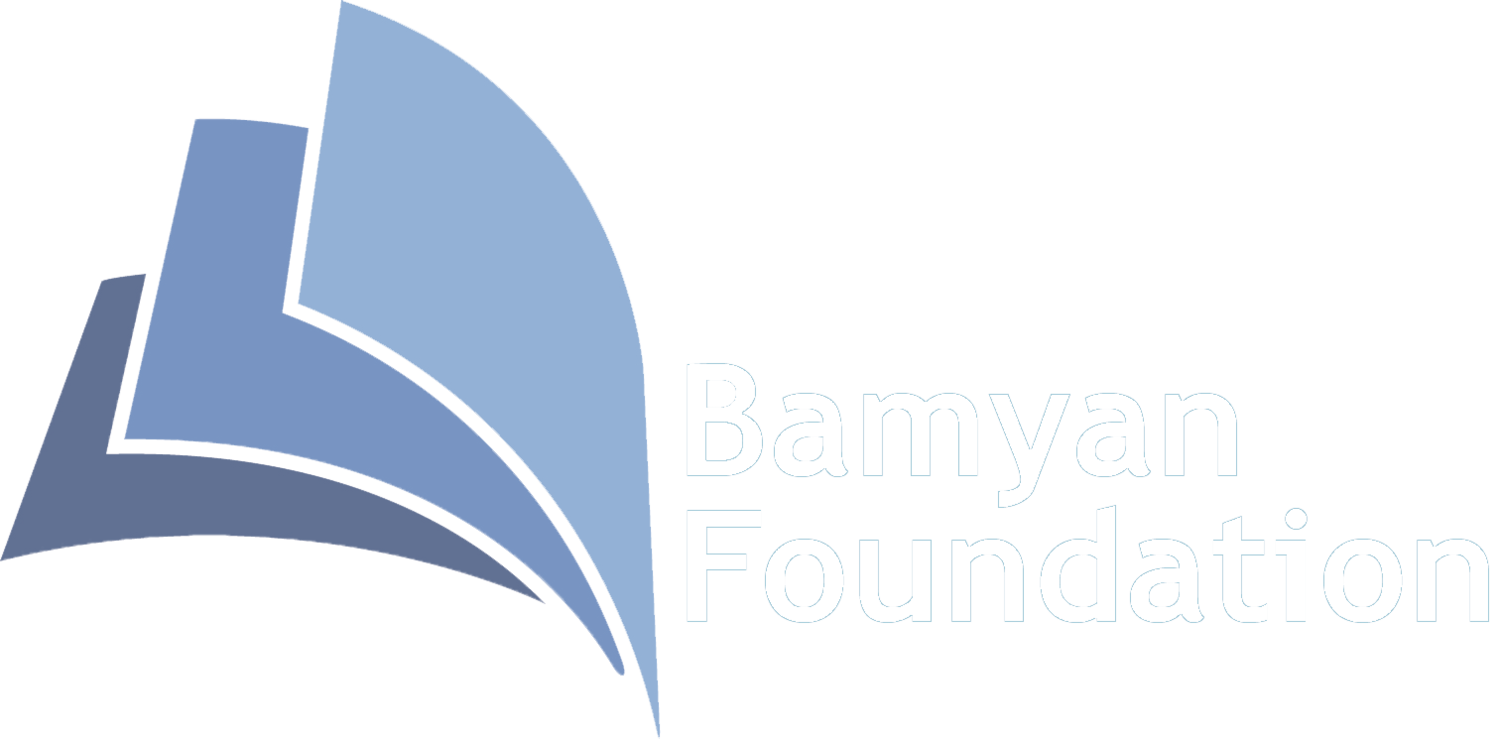#StopHazaraGenocide Campaign:
Centuries of racism and discrimination combined with systematic attacks on the basis of race and religion against the Hazaras in Afghanistan, particularly the recent devastating attack on Kaaj Academy, culminated to a worldwide movement - StopHazaraGenocide.
Hazara diasporic communities around the world held rallies and protested against the systematic attacks on their community in Afghanistan. The rallies were held in more than 120 cities around the world, including in front of the White House in Washington DC, in front of United Nations Headquarter in New York City, in Atlanta, San Diego, San Francisco and Chicago; rallies in Melbourne, Sydney and Adelaide in Australia; rallies in London (UK), Lille, Leon and Paris (France), Berlin, Munich, Wurzburg, Stuttgart and Hamburg (Germany), Vienna (Austria), Amsterdam (Netherlands), Helsinki (Finland), Dublin (Ireland), Stockholm (Sweden), Copenhagen (Denmark), Brussel (Belgium), Rome (Italy), Barcelona (Spain), Vancouver, Calgary, Ottawa & Toronto (Canada), Seoul (South Korea) and in Portugal, Kenya, Turkey, Japan, Pakistan, Malaysia and Indonesia.
Twitter:
On Twitter, the #StopHazaraGenocide has surpassed 11 million tweets despite efforts to derail the campaign by Taliban supporters by introducing misspelled hashtags. The #StopHazaraGenocide is the largest trending hashtag from Afghanistan to date. The Taliban government, taking a cue from the past Kabul regimes, introduced a counter hashtag, #UnitedAfghanistan, that has generated support among their supporters and sympathizers. In the past, Kabul regimes effectively managed and silenced the Hazara quest for justice by accusing them of being against “the Afghan national unity”, mobilized the government apparatus and rallied other ethnic groups against the Hazaras.
Several influential personalities, namely two Nobel Peace Prize Winners, Malala Yousafzai and Nadia Murad, Turkish-British author Elif Safak, Brazilian author Paulo Coelho, and parliamentarians and government officials from the United Kingdom, New Zealand and Australia have spoken in support of the campaign and raised concerns about the ongoing genocide of Hazaras in Afghanistan.
Rallies in the United States:
The Hazara-American community and the recent Hazara evacuees helped organized rallies across multiple cities in the United States. The rally in Washington DC, held on October 8, started at McPherson Square. The protestors marched to Lafayette Park and demanded recognition of the ongoing Hazara genocide in Afghanistan in front of the White House. The community held rallies in multiple US cities including in front of the United Nations headquarters in New York City, in Atlanta, Chicago, San Diego and San Francisco to raise awareness about the dire situation of Hazaras in Taliban-controlled Afghanistan. Renown genocide scholar and founder of Genocide Watch, Dr. Gregory Stanton, was present in the DC rally and read the protest resolution. In a rare showing of solidarity, like-minded Afghans of Pashtun, Tajik and Uzbek backgrounds joined their Hazara compatriots in the rallies. Farhad Darya, a known Afghan singer, composer and producer, was also in attendance in the DC protest to support the plight of the Hazaras.
Rally in front of the White House
The Bamyan Foundation team helped organize and support the rally in Washington DC and New York City.
Rallies In Afghanistan:
Hazaras and other Afghans also protested within Afghanistan despite the dangerous risks and restrictions enforced by the country’s current rulers. Brave women led the protests in multiple cities and districts in Afghanistan demanding an end of the Hazara genocide and access to education for girls. Reports suggest that the protests resulted in violent reaction from Taliban, arrests and expulsion of Hazara women students from the Kabul university.
Background:
The Hazaras are one of the largest ethnic/racial groups in Afghanistan. An accurate size of each of the major ethnic groups (Pashtuns, Hazaras, Tajiks and Uzbeks) remain unknown due to lack of an impartial census. The modern state of Afghanistan was created upon a Hazara genocide in 1890s, when approximately 62% of the Hazara population was exterminated. The Pashtun King, Amir Abdul Rahman led the brutal campaign that lasted about five years. Following the Hazara defeat, Abdul Rahman and his allies forcefully displaced the Hazaras and distributed their lands and properties among the Pashtun tribes. Hazaras were enslaved that lasted until the mid 1920s.
Following the abolishment of slavery, state-sponsored persecutions, discrimination and marginalization continued during the various Pashtun regimes until the modern times – aggravated during Taliban’s first rule in the 1990s and their second rule following the collapse of the Afghan government in 2021. While successive Kabul regimes subjected and forced the Hazaras to a low socioeconomical status through social and economic policies of marginalization for decades that continued during the democracy experiment of 2002-2021, extremist terror groups such as Taliban and ISKP (Islamic State of Khorasan Province) began systematic attacks against the Hazaras in 2011. The systematic attacks have increased at an alarming rate and have targeted schools, hospitals, mosques, sports centers, public transportation buses and other civilian facilities. Thousands of Hazara men, women and children have lost their lives and injured during these senseless attacks. In the past two years alone, the attacks targeted education centers such as Mawoud Academy, Kawsar-e-Danish, Sayed-ul-Shuhada girls school, Abul Rahim Shahid, Mumtaz Academy and Kaaj Academy (formerly Mawoud Academy), and Hazara mosques in Kabul, Kunduz and Mazar-e-Sharif. The latest attack on Kaaj Academy killed 58 students, mostly girls, and injured 126.
The Hazaras have been far from immune in the provinces as well. Thousands have been forcibly displaced in multiple provinces and their properties distributed among the Taliban allies, many summarily executed and many more sidelined from the life-saving humanitarian aid in the Hazara areas across Afghanistan.
And last but not least, since the government collapse in August 2021 – in addition to race and religion that have been major strikes against the community – the Taliban and ISKP/ISIS are targeting Hazaras due to their overwhelming support for education, moderate norms and democratic values during the US-led intervention in Afghanistan between 2002-2021.
